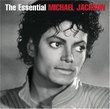| All Artists: Canned Heat, Quicksilver Messenger Service Title: Back to Back Hits Members Wishing: 0 Total Copies: 0 Label: EMI Special Products Original Release Date: 1/1/2006 Re-Release Date: 1/24/2006 Genres: Blues, Pop, Rock Styles: Electric Blues, Modern Blues, Blues Rock Number of Discs: 1 SwapaCD Credits: 1 UPC: 094633090323 |
Search - Canned Heat, Quicksilver Messenger Service :: Back to Back Hits
 | Canned Heat, Quicksilver Messenger Service Back to Back Hits Genres: Blues, Pop, Rock
|
CD DetailsSimilar CDs |
CD ReviewsEverything you always wanted, but didn't think to ask running_man | Chesterfield Twp., MI | 01/10/2004 (4 out of 5 stars) "While trolling for an acceptable collection of Canned Heat's best work, I fished up this little gem. I'm guessing at one time this compilation appeared on vinyl, making the 'Back To Back' moniker more meaningful, but that's neither here nor there. Suffice it to say that when it comes to Canned Heat and Quicksilver Messenger Service, twenty or so minutes of recording space per band is all that is required to hit the high water marks, so this CD is entirely sufficient.Canned Heat draws its name from a Roaring Twenties blues song by Tommy Johnson, 'Canned Heat Blues'. The song is about Johnson's habit of drinking Sterno to satisfy his addiction to alcohol. The title turned out to be entirely appropriate for the band, which lost it's signature vocalist, Al 'Blind Owl' Wilson to heroin addiction in 1970. Wilson wrote and sang lead on the band's two trademark hits, 'On the Road Again' (which rose to number 16 on the national charts in 1968) and 'Going Up the Country' (number 11 in 1969). The band had only one other song that cracked the Top 40, their grinding assimilation of Wilbert Harrison's 'Let's Work Together', which rose to number 26 in 1970. Canned Heat produced a lot of good music, but nothing to rival these three songs, which are lined up at the beginning of the CD for the discriminating listener. But also included here is 'Rockin' With the King', a rollicking number mainly of interest due to Little Richard's collaboration on it, and an edited version of 'Fried Hockey Boogie'(the original 1968 version on their second LP ran 12 minutes), which introduces the band, gives each member a chance to solo, established their claim to fame as the Kings of Boogie, and makes you swear you are listening to a ZZ Top tribute band.While Canned Heat didn't contribute a large body of music that is all that significant, the band was instrumental in the ascent of rock to it's glorious heights in the late 1960's and early 1970's. The band appeared at nearly all the great concerts of the era, including Monterey Pop in 1967, Woodstock in 1969 ('Going Up the Country' even served as the theme for the reknown documentary film on the event), and the Isle of Wight Festival in 1970. Hailing from California, another band that had an impact on about the same scale as Canned Heat was Quicksilver Messenger Service. 'Quicksilver Messenger Service' was named after Mercury, the astrological ruling planet for all the band's members, once you make the leap from the planet to the periodic table (the element mercury is also known as quicksilver). The spaced-out origin for their name is entirely appropriate given the band's signature acid-rock sound, born on the heels of Jefferson Airplane and The Grateful Dead, and their characteristic psychedelic lyrics. The band originated as a rock medium for folk singer Dino Valente, and featured two quality guitarists, John Cipollina and Gary Duncan. Like Canned Heat, QMS also had a spate of 'hits' circa-1970, the first being a pair of songs released unsuccessfully as the A and B sides of a 1967 45, 'Pride of Man' and 'Dino's Song'. Both are memorable despite their inability to crack Billboards charts as they received considerable play on the emerging free-form FM radio stations of the era. While 'Dino's Song' is a simple love song, 'Pride of Man' is written as a majestic, modern day psalm. Consider this verse, which is representative of the complete set of lyrics: "Terror is on every side, lo our leaders are dismayed, for those who place their faith in fire, their faith in fire shall be repayed". While QMS could obviously be quite a thoughtful band, they could also rock out, albeit in a laid-back California way. Thus, a decent remake of Bo Diddley's 'Who Do You Love', which rose to number 91 in 1969, is included next. We only get 'Part 1' on this disc. The album version trailed off into lengthy guitar solo's, and even expanded into a suite of related numbers.The disc concludes with QMS's two most recognizable hits, 1970's 'Fresh Air', which charted out at number 49, and 1971's 'What About Me?', which managed to squeek in at #100. Both songs are classic period pieces, harkening back to the crest of the New Left's era of social consciousness and youth rebellion. In 1970 the band added its best known player, session pianist Nicky Hopkins to its lineup, whose credits included The Beatles, The Stones, and The Who. Aside from QMS however, Hopkins was only an official member of one other band, The Jeff Beck Group. Scoring Hopkins presence in the band was their last big 'hit', and the band dissolved after a brief 1975 reunion.So if you're a fan of these musical stylings, and especially of this turbulent era which served as a crucible for such exemplary composing in the field of rock music, you can't go wrong with this selection."
|

 Track Listings (10) - Disc #1
Track Listings (10) - Disc #1